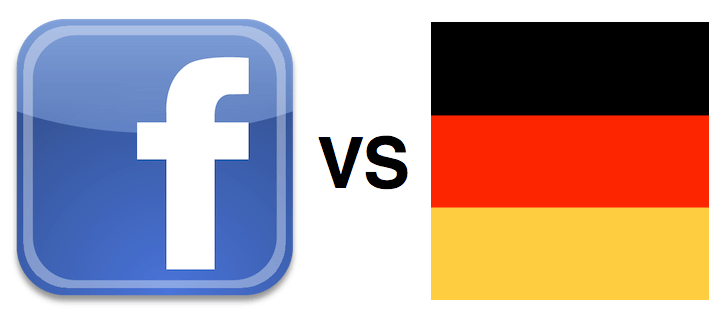A Northern German state’s data protection commissioner has threatened to fine Mark Zuckerberg $26,000 for Facebook allegedly violating the country’s law stating citizens may use media services anonymously. Facebook plans to “fight [the threat] vigorously”. That’s wise, as altering its real-name policy could jeopardize Facebook’s future. Prohibiting pseudonyms lets Facebook remove spammers and serve as an identity provider for the web.
The Guardian reports that Thilo Weichert, the data protection commissioner of northern German state Schleswig-Holstein has informed Facebook Ireland and Zuckerberg that the CEO may be fined €20,000 for breaking German privacy law unless Facebook provides an option for Germans to use the service anonymously.
Facebook meanwhile believes the real name policy is crucial to keep its service secure. Section 4 of its Statement Of Rights And Responsibilities explains “Facebook users provide their real names” and “You will not provide any false personal information on Facebook” such as when the service asks for people’s real first and last name upon signup.
Facebook believes it is complying with wider European data protection laws and the laws of Ireland where its European subsidiary is based. Facebook responded to the news in a statement to TechCrunch:
“It is the role of individual services to determine their own policies about anonymity within the governing law – for Facebook Ireland European data protection and Irish law. We believe the orders are without merit, a waste of German taxpayers’ money and we will fight it vigorously. ”
Facebook’s position would pit European law against Germany’s. The Irish Data Protection Commissioner holds that Facebook’s real name policy, which states that users cannot use a fake name to register for the service, complies with European data protection principles and Irish law. In fact, the Irish Comissioner sees the policy helps people better manage their private information securely.
In some sense, Facebook already has an anonymous option — you can browse some of the site while logged out. For example, you can visit Facebook Pages and read their updates but not comment on them. Facebook likely wants to discourage this, though. As it doesn’t show ads within the site to people who aren’t signed in (though it does show ads to users when they log out).
Advocates for Weichert’s position might say political dissidents, whistleblowers, those being stalked, and others deserve a way to use Facebook anonymously. But that’s a slippery slope towards social chaos that hampered Myspace. For now, Facebook’s policy is that is that if you want total anonymity, that’s alright, just don’t use Facebook. If you argue this shows Facebook’s only intent is gathering personal data, well, it’s a business and securely absorbing and leveraging that data is what powers that business.

Even if Facebook was forced to repeatedly pay fines, flouting Weichert’s interpretation of German anonymity law is likely the best move for its business. If it bowed to Weichert’s call to provide an anonymous option, other conservative nations could call for the same.
Such changes could hurt the service. With anonymity can come an abandonment of responsibility for ones actions. Anonymous Facebook users might sling hate speech and otherwise harm the experience of everyone else. The real name policy also helps Facebook fend off spammers, as it has legal grounds to delete fake accounts at will. An anonymity option could create a loophole for spammers.
Requiring real names has also turned Facebook into an identity provider for the Internet. Other sites can use its identity system rather than requiring users to create a new profile. By doing so, third-parties can cut down on uncivil behavior that throwaway, one-off accounts facilitate. People don’t want to say offensive things and break terms of service if it means their real Facebook account with their real social graph could be suspended. The advantages of a unified, cross-web identity for fighting abuse has turned Facebook’s commenting widget into one of the most popular blog commenting systems in the world.
Currently, advertisers may be willing to pay more because they know they’re reaching a faithful version of someone, not a character they’ve made up.
Down the line, the real-name policy could also create new monetization schemes for Facebook. Facebook’s best move therefore may be to fight this German data protection commissioner to the bitter end. Even then it may want to refuse to change its policy despite the consequences.
